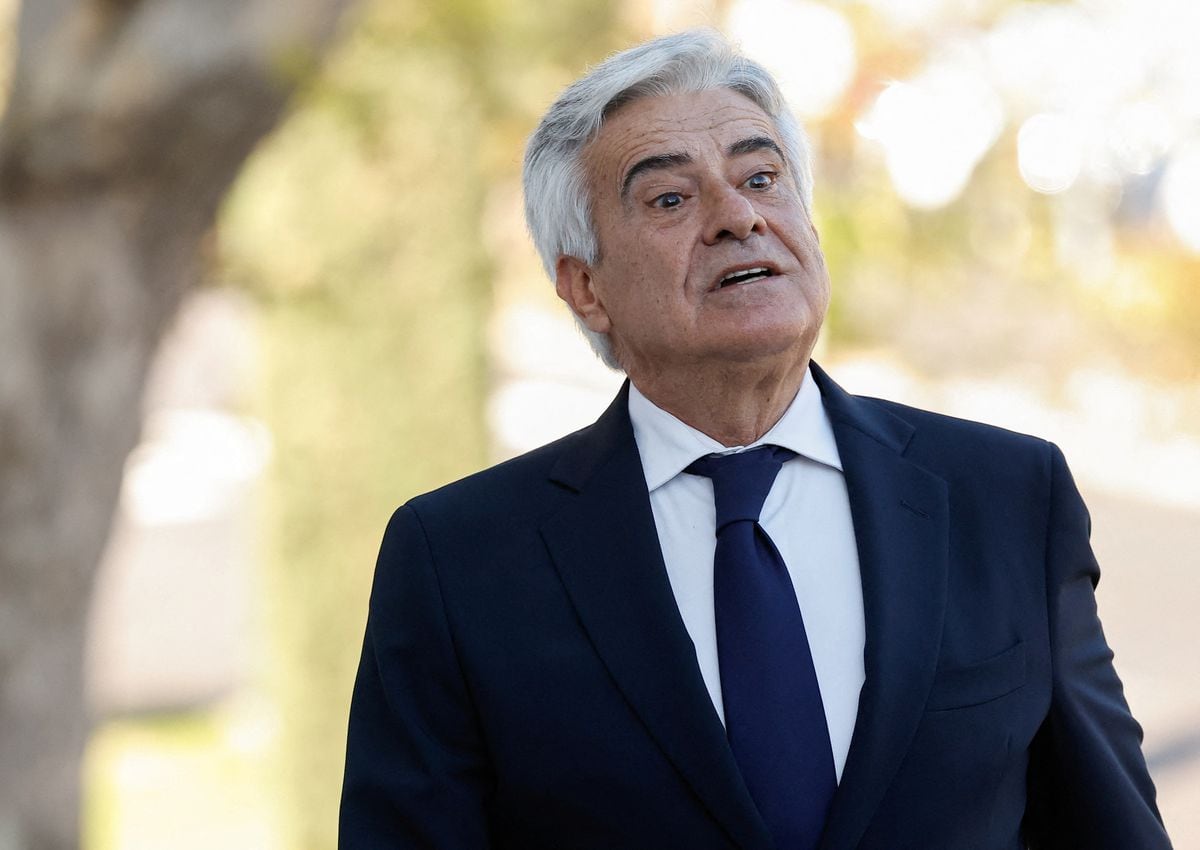The future Camp Nou, in the Espai Barça complex. Santiago Garcés Villanueva
Maximum solemnity, that of the Saló de Cent of the Barcelona City Council, to announce the agreement to start, now, the reform works of the Camp Nou and its surroundings: the future Espai Barça.
The mayor of Barcelona, Ada Colau, and the president of FC Barcelona, Joan Laporta, announced this Thursday that the transformation will start this June and that the 2023-24 season Barça will play at the Lluís Companys Olympic stadium, on the mountain of Montjuïc of the city.
The date of the provisional transfer was known, but not where.
During the next season the works in the stadium will focus on the first and second stands and will be compatible with the competition.
The demolition of the third tier is delayed until the summer of next year, due to uncertainties about the impact of the Russian invasion of Ukraine on the cost of the project.
It will be then when the transfer will take place.
The 24/25 season will be able to return to the Camp Nou with a capacity of 50%.
More information
Espai Barça: massive support for the new Camp Nou
The consistory has explained that the parties are working to agree on the conditions of the transfer and how the club will participate in the expenses that the stadium will entail to host the competition.
The agreement will include the necessary interventions in the stadium (where Espanyol also played between 1997 and 2009, after the sale of Sarrià and the opening of the Cornellà stadium) and also the co-responsibility of FC Barcelona for the cost in matters such as mobility, cleaning, security or maintenance of the stadium environment.
The stadium has a smaller capacity than the Camp Nou and the club is looking for a formula to manage it with the members who have a seat.
Colau has also announced that the Government Commission has approved the granting of the building permit for the reform and expansion of the stadium, which the club plans to start in the summer, when the season ends.
The works will mean opening the facilities now fenced off to the city and renovating 111,000 square meters for public use, with more greenery and bike lanes.
The works, with an expected cost of 1,500 million, are scheduled to be completed in 2026.
"This great agreement will bring about a great improvement for the city", the mayor celebrated and applauded that the changes introduced in the first project (regarding sustainability) are aligned with the city's policy.
"We will be a reference for partners, internationally and in technology", Laporta highlighted.
Initially, the works will focus on the first and second stands (restoration and waterproofing, among other works), on enabling new technological systems (telecommunications for transmissions, transfer of the data center and technical room) and on the surroundings of the Camp Nou and the urbanization of the exterior.
Meanwhile, the planned actions continue beyond the venue, in accordance with the Espai Barça urban plan, approved in 2018. This is the case of the redevelopment of Menéndez Pelayo street and the demolition of the building owned by the club on Travessera de les Corts , the old riding school.
There is a fringe, however, and they are the modifications to the project that was approved in 2018, with Josep Maria Bartomeu as president of the club.
Last May, the municipal government met with the current board of directors of the club and learned of its intention to introduce changes in the first proposal: improvements in sustainability, innovation, technology and accessibility.
It will be necessary for the Government commission to approve a modification of the main license for the works of the future Camp Nou.
Among other novelties, it is planned to install 18,000 square meters of photovoltaic plates on the new roof (they will generate the equivalent of 600 apartments in the Eixample), a geothermal system (to take advantage of the heat from the subsoil) and global heat and cold distribution.
They also want to reuse rainwater from the roof and promote biodiversity, increasing the number of trees on the site by 15%.
"Sustainability becomes the DNA of the Stadium to turn the Camp Nou into a benchmark", the club pointed out.
60% of the parking spaces will be for electric vehicles and there will be spaces for bicycles and scooters.
The current club board received the endorsement of the members at the end of last year.
With 87.8% of the votes in favor in a telematic referendum, the partners endorsed seeking financing for a maximum of 1,500 million euros for Espai Barça.
The investment contemplates allocating 900 million for the Camp Nou, whose capacity will be 105,000 spectators;
420 million for the Palau Blaugrana;
20 million for the Johan Cruyff;
100 for the urbanization of the campus;
and 60 for investment in streets provided for in the modification of the General Metropolitan Plan.
You can follow EL PAÍS Deportes on
and
, or sign up here to receive
our weekly newsletter
.














